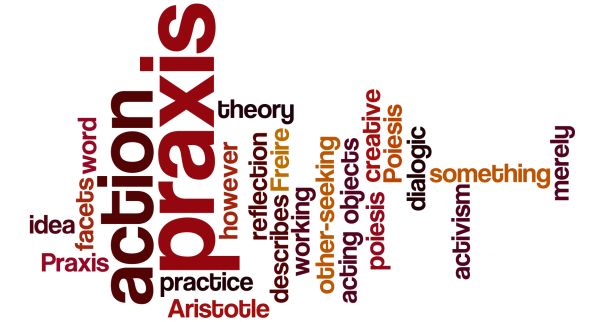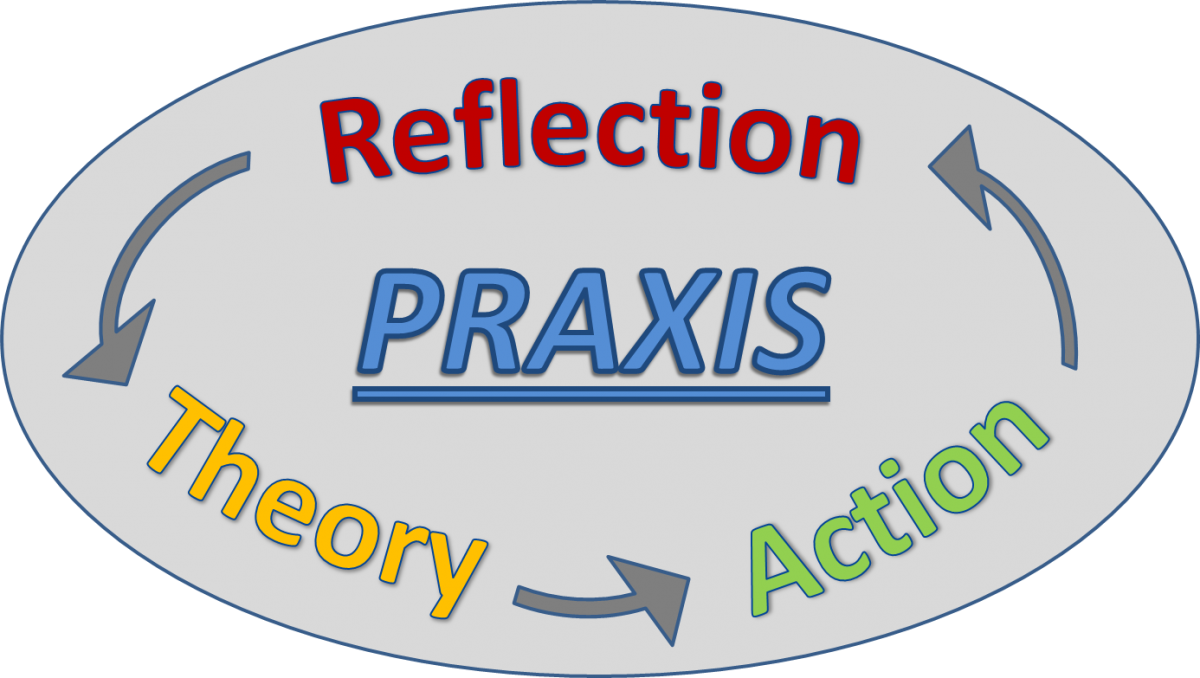Praxis may be described as a form of critical thinking and comprises the combination of reflection and action.
Praxis can be viewed as a progression of cognitive and physical actions:
- Taking the action
- Considering the impacts of the action
- Analysing the results of the action by reflecting upon it
- Altering and revising conceptions and planning following reflection
- Implementing these plans in further actions
This creates a cycle which can be viewed in terms of educational settings, learners and educational facilitators.
Praxis has been described as:
“doing something, and then only afterwards, finding out why you did it”

Praxis is not simply action based on reflection.
It is action which embodies certain qualities. These include a commitment to human well being and the search for truth, and respect for others. It is the action of people who are free, who are able to act for themselves.
Praxis is always risky. It requires that a person ‘makes a wise and prudent practical judgement about how to act in this situation’ (page 190, Carr, W. and Kemmis, S. (1986) Becoming Critical. Education Knowledge and Action Research)
